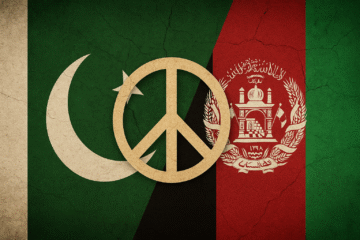Islamabad/Riyadh – Pakistan and Saudi Arabia have signed a landmark defense agreement, marking a significant milestone in their decades-long relationship. The pact is being hailed as more than a routine bilateral deal—it is viewed as a strategic step that will not only strengthen military cooperation but also enhance security and foster long-term stability in one of the world’s most sensitive regions.
At a time when the Middle East and South Asia are experiencing complex geopolitical challenges, this agreement sends a strong message about the two countries’ resolve to deepen their strategic partnership. Both nations share a history of close ties based on religious, cultural, and political connections, and this pact is seen as a formal modernization of those enduring bonds.
Key Highlights of the Agreement
The defense agreement outlines several critical areas of cooperation, reflecting the priorities of both governments:
-
Expansion of Joint Military Exercises – Pakistan and Saudi Arabia will conduct more frequent and advanced military drills. This will allow both armies to learn from each other’s operational strategies, share best practices, and enhance interoperability.
-
Support in Defense Technology – Pakistan will provide technical support to Saudi Arabia in defense technology and arms production. With its growing defense industry, Pakistan is well positioned to supply expertise, equipment, and knowledge to help modernize the Saudi military.
-
A Joint Counterterrorism Strategy – The two countries have pledged to work together against terrorism and extremism. The cooperation will involve intelligence-sharing, joint planning, and coordinated actions against common threats.
-
Training and Expertise Exchange – Saudi officers will receive training in Pakistan’s prestigious military academies, while Pakistani defense experts will serve in Saudi Arabia, ensuring a two-way flow of skills and knowledge.
A Historical Perspective
The defense partnership between Pakistan and Saudi Arabia is not new. It stretches back more than half a century, built on trust and mutual reliance.
In the 1960s, Pakistan sent military advisers to Saudi Arabia, assisting in the development of the Kingdom’s defense infrastructure. These deployments laid the foundation for long-term collaboration.
During the 1980s Afghan conflict, both nations worked closely to support the Afghan resistance. Their cooperation during that era demonstrated the depth of their shared strategic interests.
Over the years, Pakistan has played a continuous role in training Saudi military personnel and providing consultancy on defense matters. Saudi Arabia, in turn, has supported Pakistan economically and diplomatically, particularly during times of financial strain.
The new defense pact is seen as a formal continuation of this relationship—structured, comprehensive, and adapted to modern-day security needs.
Why the Agreement Matters for the Region
Regional analysts stress that the agreement is not simply symbolic but carries broader implications. The Middle East and South Asia are both going through periods of heightened sensitivity. Conflicts, proxy wars, and shifting alliances have made security cooperation more urgent than ever.
-
Monitoring by Regional Players – Iran and other regional powers are watching the development closely, as it could affect the balance of influence in the Gulf and beyond.
-
Counterterrorism Impact – Joint efforts against terrorism are expected to bring more stability to the region. Both Pakistan and Saudi Arabia have been targets of extremist networks, and their collaboration can make counterterrorism measures more effective.
-
Economic and Trade Implications – While the agreement focuses on defense, experts believe it could indirectly strengthen economic and trade ties, opening new avenues for cooperation in industries beyond the military sector.
What Pakistan Stands to Gain
For Pakistan, this agreement carries multiple benefits:
-
Defense Exports – Pakistan’s defense industry will gain new opportunities for exports, boosting its economy and enhancing its global market presence.
-
International Prestige – By partnering with a major Gulf power, Pakistan reinforces its reputation as a responsible and capable defense partner on the global stage.
-
Stronger Role in the Middle East – The pact strengthens Pakistan’s political and strategic footprint in the Middle East, where it already enjoys goodwill due to historic and religious ties.
What Saudi Arabia Stands to Gain
Saudi Arabia, too, benefits in significant ways:
-
Enhanced Defense Capacity – By tapping into Pakistan’s military expertise, Saudi Arabia can accelerate the modernization of its defense forces.
-
Effective Counterterrorism Strategy – The Kingdom will gain valuable support in crafting strategies to combat terrorism, a priority given the security challenges it faces in the region.
-
Symbol of Islamic Unity – The pact also underscores Saudi Arabia’s role as a leader in the Muslim world, highlighting its commitment to unity and cooperation with other Islamic nations.
The Global Reaction
The agreement has attracted international attention. China and Turkey have welcomed it as a positive development, viewing it as a move that strengthens the Muslim world’s collective security.
Some Western countries, however, are analyzing it through the lens of regional power dynamics. For them, the agreement may shift the balance of influence in ways that could affect their own interests in the Middle East and South Asia.
This mixed reaction underscores the global significance of the deal, showing that it is not just a bilateral arrangement but one with far-reaching implications.
Looking Toward the Future
Experts argue that this agreement is just the beginning. The coming months are expected to witness practical steps such as joint exercises, collaborative defense projects, and expanded training programs.
These initiatives are likely to:
-
Improve operational readiness of both armies.
-
Foster a deeper sense of trust and cooperation.
-
Lay the groundwork for long-term joint ventures in defense technology.
For the broader region, these moves could mean more stability and a stronger front against terrorism.
Conclusion
The Pakistan–Saudi Arabia defense agreement represents more than just military cooperation. It is a reflection of shared history, mutual trust, and a common vision for the future.
For Pakistan, it brings new opportunities for defense exports, a stronger international profile, and a deeper role in Middle Eastern affairs. For Saudi Arabia, it means enhanced defense capabilities, effective counterterrorism strategies, and a reaffirmation of its leadership role in the Muslim world.
On a regional scale, the pact symbolizes a new era of unity and cooperation at a time when the Middle East and South Asia face some of their most pressing challenges.
Ultimately, this agreement is not just about the two nations involved—it is about creating a framework for peace, stability, and progress that could resonate across the Islamic world and beyond. By formalizing and modernizing their long-standing partnership, Pakistan and Saudi Arabia have sent a clear signal: together, they are ready to shape a more secure and cooperative future.



0 Comments